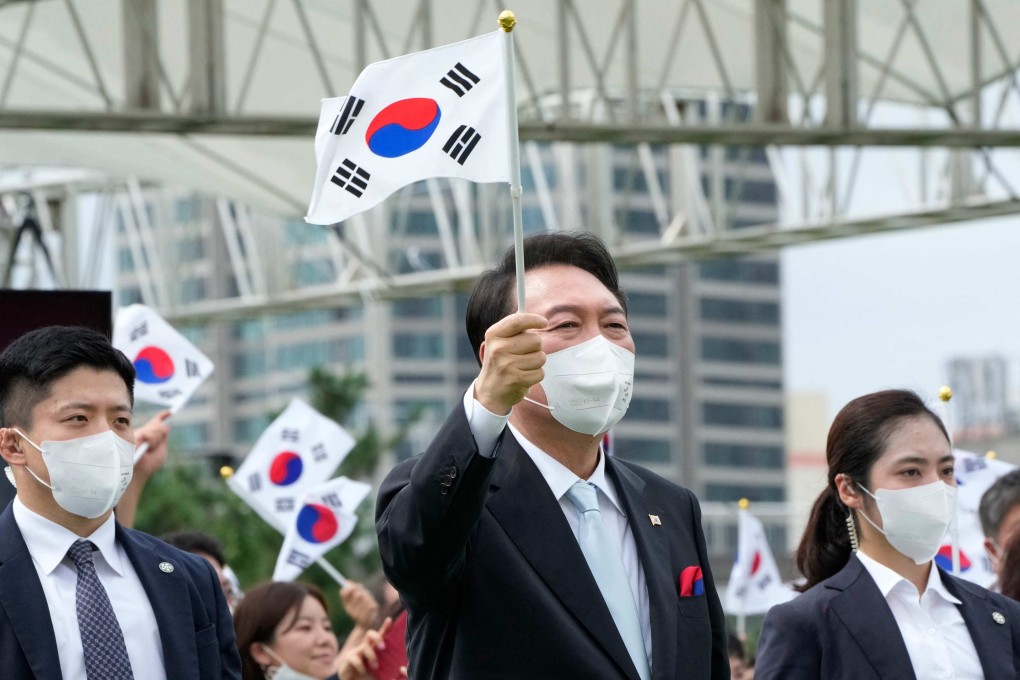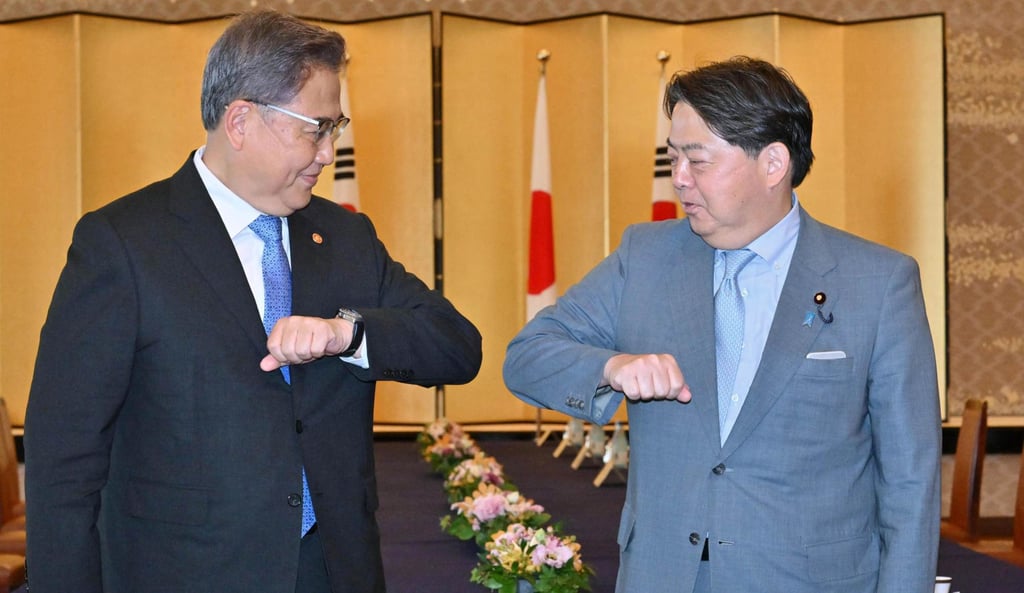South Korea, Japan must confront ‘common threats’ together, Yoon Suk-yeol says – as Kishida vows to never again wage war
- The South Korean president, at a ceremony marking the end of Japanese colonial rule, called for ties between the two to ‘swiftly and properly improve’
- It came as Fumio Kishida sent an offering to a controversial shrine honouring Japanese war dead – and pledged that Japan would never again wage war

Speaking at a ceremony to mark the 1945 end of Japan’s colonial rule of the Korean peninsula, Yoon said Tokyo had become a partner in tackling threats to global freedom, adding that he wants to “swiftly and properly improve” bilateral relations.
“When Korea-Japan relations move toward a common future and when the mission of our times align, based on our shared universal values, it will also help us solve the historical problems that exist between our two countries,” Yoon said in the Liberation Day speech.

South Korea’s foreign ministry submitted an argument to the Supreme Court last month, asking for a delay of the verdict on liquidising assets of a Japanese company to pay compensation for the conscripted workers. The ministry added it was making various diplomatic efforts to resolve the issue.